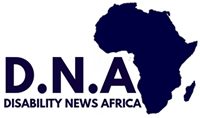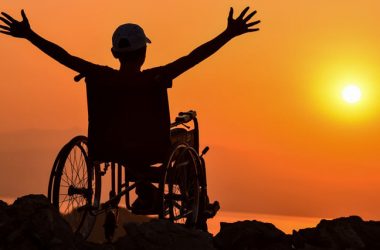Gertrude Oforiwa Fefoame is Sightsavers’ Global Advocacy Manager for social inclusion. She is also a member of the committee that monitors implementation of the UN Convention on the Rights of Persons with Disabilities. Here, she tells her story.
As a young woman growing up in a developing country, I experienced negative attitudes due to the loss of my sight. I met another visually impaired person of my age group – her coming into my life was a great help. It was through her mentorship and friendship that I developed the self-confidence, self-assertiveness and knowledge to manage the different aspects of my life.
I decided to dedicate myself in whichever possible way to the development of other persons with disabilities. This I pursued through my professional and volunteer career.
Since then, I have been mentoring and training other persons with disabilities and fighting against marginalisation to bring about change in the lives of persons with disabilities. For a greater impact to be achieved, I decided to apply for a role in an international development organisation – Sightsavers – that had the passion to advocate for the rights of persons with disabilities.
‘There’s loads I love about this work’
There’s loads I love about this work. First, as a mentor, role model, trainer, and facilitator, seeing the direct impact of change for a woman or girl with disability, from one who otherwise thought she is ‘good for nothing’ to one who says ‘I can’ is amazing.
Second, I love the ability to influence the duty bearers, the states and key stakeholders, who hold the power to make and amend policies and create an environment that meaningfully includes persons with disabilities in all areas of life.
Seeing the direct impact on the lives of persons with disabilities due to my added voice to the advocacy on disability inclusion has been exciting. Learning new things from different cultures due to the multicultural environment I find myself in is very rewarding. I am always ready and enthused to partner with different organisations, countries, and groups to achieve the same objective.
There’s a lot I’m proud of since taking up this role. One is my election onto the United Nations Committee of independent experts that monitors the implementation of the Convention on the Rights of Persons with Disabilities (CRPD) in 2018 to serve until 2022.
This was at a time when the Committee had only one female member whose tenure was ending. It was made possible largely due to the #EqualUN campaign, which was successful and saw six women elected in 2018. Now, once again, I have been nominated by the government of Ghana for re-election onto the committee and the Equal World campaign is calling for women to be represented equally.
On the committee, I have been instrumental in the re-establishment of the Working Group on Women and Girls, and I was unanimously elected as the chair. Also, in 2021, I received the World Blind Union’s first Women’s Empowerment Award at the World Blindness Summit in recognition of my lifelong work for the rights of women and girls with disabilities.
Across the globe, many women and girls face discrimination on the basis of their gender. It’s even worse for women and girls with disabilities as they are discriminated against twice, on the grounds of both gender and disability.
‘The perspectives of women and girls with disabilities should be included’
To break the bias and improve equity for women and girls with disabilities, mainstream policies, programmes and initiatives aimed specifically at people with disabilities should have a cross-cutting gender component to ensure the inclusion and empowerment of women and girls with disabilities. The perspectives of women and girls with disabilities should also be included in all aspects of work for women’s empowerment.
In my different roles, I advocate for women and girls with disabilities to have equal rights as others in all spheres of life. The COVID-19 pandemic has seen women and girls with disabilities face increased violence and lack of access to health, particularly sexual and reproductive health, and it is more important than ever that their views are considered and represented by human rights treaty bodies.
This is also why my role as chair of the working group on women and girls is timely. We hope the working group can work collaboratively with UN treaty bodies, such as the expert committee on the Convention on the Elimination of Discrimination Against Women (CEDAW), and other stakeholders.
We must make sure that the voices of women and girls with disabilities are included and heard. Through submissions and statements, we shine a light on the challenges and discrimination women and girls with disabilities face and advocate for their inclusion to ensure no one is left behind.
Source: smileymovement.org






